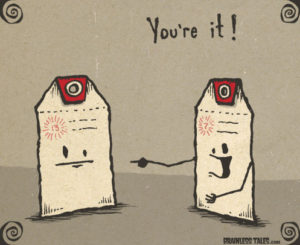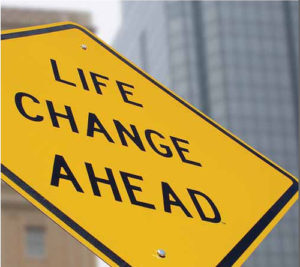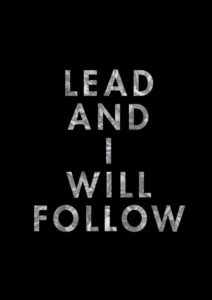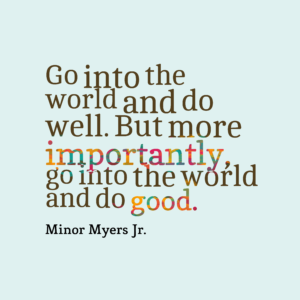The title of this post is not something you’d typically see from an HR blog. It comes from a recent lunch I had with a friend. She was talking about working with a new co-worker who said, “I’m sorry . . .” before every response she gave in regards to her work. I asked her how she was trying to change this behavior, and she calmly responded, “I’m beating the sorry out of her !!” I almost spit out my water with laughter. What a great saying.
Please don’t mistake this as asking people to not show empathy in how they practice HR. Empathy is an essential skill we all need, but apologizing all the time isn’t. When I think about how I hear HR peers talk about what they do, “I’m sorry” (or something like that) is usually the lead in phrase. Have you heard (or said) these?
“I’m sorry that our benefit costs are going up . . .”
“I’m sorry that wages are being frozen this year . . .”
“I’m sorry that your supervisor is difficult to work with . . .”
You could continue this list of apologetic phrases for hours. I understand that part of our role is delivering difficult news and/or dealing with challenging employee relations situations. However, we don’t have to state how sorry we are to try and ease into how things are occurring. It seems trite, defensive and lacking confidence. We may think we’re showing a softer side, but if you listen to it from the receiver side of the interaction, it sounds wishy-washy.
One of the marks against our profession is that people see us as indecisive within organizations. We may be great “support” functions, but we aren’t viewed as others are when it comes to leadership. I’m tired of seeing this happen. It also doesn’t make sense that downplaying who we are and what we do is a position that should ever be taken. We can’t just hope that someone will bestow the mantle of leadership upon us.
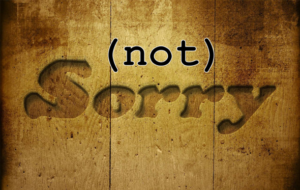 Leadership takes action and being intentional. That doesn’t mean you need to be a jerk or some hard head in order to he heard and taken seriously. However, we can’t keep coming in with an apology either. The shift that is needed isn’t difficult to adopt, but it does take discipline and a willingness to step forward in confidence in the decisions for which you are responsible.
Leadership takes action and being intentional. That doesn’t mean you need to be a jerk or some hard head in order to he heard and taken seriously. However, we can’t keep coming in with an apology either. The shift that is needed isn’t difficult to adopt, but it does take discipline and a willingness to step forward in confidence in the decisions for which you are responsible.
The two best ways to stop apologizing include your approach and the use of context. Approach is something that you control personally. How you assess a situation, how you react and who you involve are factors with every interaction. We should address people who are involved in HR related situations directly and not in hallway gossip. Being direct (with empathy) is what employees would love to see on a regular basis.
The other aspect of approach is context. “Because that’s the policy” is not context, it’s a crutch. It may not feel great to give the hard answer on the reality of circumstances, but it’s needed. Know this – if you give up being the person who brings context to employee relations, then someone else will. It will most likely be their version of context, and it won’t be the truth. We can’t afford to keep forfeiting an area of culture which we should own and lead.
This week stop apologizing when you start talking. State what you want to say and move forward. People may be shocked at first that HR is using a new approach. Trust me though that they’ll appreciate this new HR so much more than what had been there before !!

